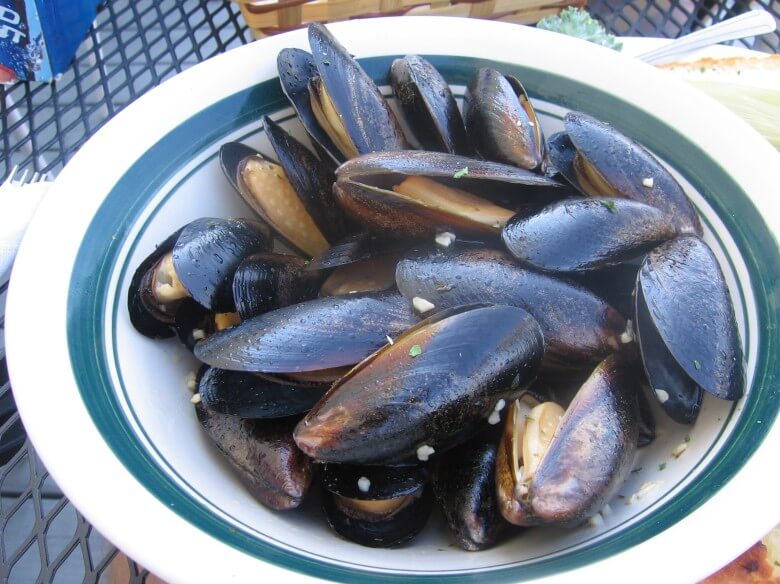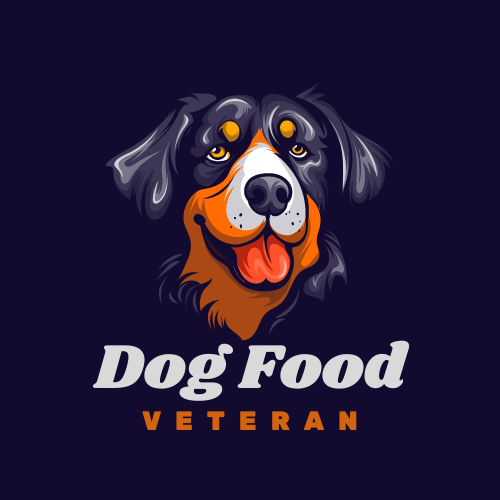
Mussels are a popular seafood choice for many of us, and they are extremely healthy due to the fact that they contain all the necessary vitamins and minerals. But as a pet owner, you may wonder: Can dogs eat mussels too? Are they safe, and could they provide them with the same health benefits? Stay with us as we give answers to all your burning questions in this guide
What Are Mussels?
Mussels are a type of shellfish found in both freshwater and saltwater. This food is considered one of the healthiest because it has omega-3 fatty acids, proteins, zinc, and vitamins such as B12 and C. That’s not all, it also regulates heart health by boosting the immune system and aiding in muscle repair. Without a doubt, such benefits to human beings could raise a question among pet owners whether the same benefits would apply to their pets.
Just like us, dogs can benefit from these nutrients too! Omega-3s are said to be great for shiny coats and healthy joints, and the protein in mussels is good for muscle growth and energy levels. As much as mussels can be a nutritious addition to your dog’s diet, there are safety guidelines to ensure that your pup stays healthy and happy.
Can dogs eat mussels?
When it comes to feeding our dogs, we always want to make sure we’re giving them the best nutrition possible. According to veterinarians and animal nutritionists, mussels can indeed be a safe and healthy addition to your dog’s diet, as long as you prepare them properly. Cooked or freeze-dried mussels are the safest forms to offer your dog, while raw is not usually suggested because of bacteria or parasites. Cooking or freeze-drying mussels eliminates these risks, making them a healthier option for your pet.
You may notice that some high-quality pet food brands include mussels, particularly green-lipped mussels, in their recipes. These mussels are often added for their joint-supporting properties, especially in senior dogs or those with arthritis. The anti-inflammatory benefits of mussels, especially in the form of freeze-dried treats, are becoming more recognized in the pet nutrition world.
What are the nutritional benefits of mussels for dogs?
Mussels provide a wealth of nutrients that can support your dog’s overall health:
- High-Quality Protein for Muscle Development: Mussels are an excellent source of protein, which is essential for building strong muscles and providing your dog with the energy needed for daily activities.
- Omega-3 Fatty Acids for Joint Health and Inflammation: Omega-3s are known for their anti-inflammatory properties, making mussels particularly helpful for dogs with arthritis or any other other jointproblems. They also promote a shiny coat and support heart health.
- Vitamins and Minerals for Immune Support: Mussels are rich in vitamins like B12, which boosts energy and supports nerve function, and minerals such as zinc that help maintain a strong immune system. These nutrients contribute to your dog’s overall well-being.
Studies like “Effect of a Diet Enriched with Green-Lipped Mussel on Pain Behaviour and Fuctioning in Dogs with Clinical Osteoarthritis by Corbee, R.J, and Influence of Green-Lipped Mussels (Perna canaliculus) in Alleviating Signns of Arthritis in Dogs by Bui, L M., Bierer, T.L have shown that green-lipped mussels in particular are highly effective in reducing joint inflammation and improving the mobility of dogs suffering from with arthritis.
In fact, experts now recommend them as a natural supplement for maintaining healthy joints, with fewer side effects compared to medications. However, consulting with your veterinarian is always a good step to make sure your dog is getting the right amount of those nutrients for their specific needs.
How to Safely Feed Mussels to Dogs
When it comes to feeding mussels to your dog, safety is key. Here are some important guidelines to follow:
- Cook the Mussels: Make sure you cook them through steaming or boiling to kill bacteria and parasites. Raw mussels can contain contamination and should be avoided when offering them to your do
- Remove the Shells: You should never give shells to your dog when feeding mussels. Shells can choke your dog and may further hurt his mouth, throat, or digestive tract.
- Serve in Moderation: While mussels are extremely healthy, they’re also rich in minerals. For that reason, it’s important to feed them in moderation to avoid overconsumption that may cause digestive upset or mineral imbalances. A small portion a few times a week should suffice.
- How to Incorporate Mussels: You can add cooked mussels to your dog’s regular meal or use freeze-dried mussels as a tasty treat. They can serve as a great occasional reward, packed with nutrition.
Can dogs eat raw mussels?
Feeding a dog raw mussels is not safe at all, due to the risks of contamination. Raw mussels can carry bacteria like Vibrio or parasites that can make your dog sick. According to experts, cooked or freeze-dried mussels are much safer alternatives. The cooking process eliminates these hazards, thus making them so much healthier to eat.
What are the Risks of Feeding Mussels to Dogs
While mussels can be beneficial, there are potential risks to be aware of:
- Allergies: Some dogs may be allergic to shellfish, including mussels. So, go slow when you introduce mussel into your dog’s diet, and watch for any signs of an allergy, such as itching, swelling, or labored breathing.
- Overconsumption: This may result in stomach problems such as vomiting or diarrhea in your dog. Mussels are rich; giving too many will upset your dog’s digestive system, especially if it’s their first time eating shellfish.
- Shell Fragments: Always make sure mussels are properly deshelled, as fragments can cause injury or blockages.
Consulting reliable veterinary sources or your own vet will help you determine how many mussels your dog should eat and how often. Generally speaking, mussels should be a special treat rather than a staple in your dog’s diet.
Are there mussel-based supplements for dogs?
Yes, green-lipped mussel supplements have become increasingly popular, particularly for their joint and cartilage health benefits. These supplements are made for dogs to address issues like arthritis, providing a safer alternative to whole mussels. They often come in powders, capsules, and chewables and are designed to deliver the anti-inflammatory benefits of green-lipped mussels without the risks associated with raw or whole shellfish.
What to do if your dog eats too many Mussels
If your dog has eaten too many mussels, monitor them for signs of digestive upset, such as vomiting, diarrhea, or lethargy. In some cases, the consumption of mussels can also cause allergic reactions in dogs, which may be symptoms like swelling, rashes, or difficulty breathing. If you notice any of these symptoms, consult with your veterinarian for advice immediately. Generally, I recommend a vet visit if symptoms persist or worsen, to ensure your dog’s health is not in danger.
What are the dog-friendly seafood alternatives?
For safe seafood options, veterinarians suggest:
- Sardines: Rich in omega-3s, calcium, and protein, they support skin, coat, and joint health.
- Salmon: Cooked salmon offers omega-3s and protein, promoting inflammation reduction and heart health.
- Fish Oil Supplements: An easy way to provide omega-3 benefits for joint support without preparing seafood.
Other low-risk, vet-approved treats like freeze-dried sardines, salmon bites, or green-lipped mussel supplements also offer similar benefits without the risk of contamination or choking.
Conclusion
Mussels can be a healthy addition to your dog’s diet when cooked, deshelled, and served in moderation, but they’re not essential. Always consult your veterinarian before introducing new seafood or supplements.
FAQ Section
Can dogs eat green-lipped mussels?
Yes, you can use them as supplements for joint health.
How do mussels help with joint health in dogs?
Mussels contain omega-3 fatty acids, which reduce inflammation and support joint mobility.
Can dogs have mussels with shells?
No, mussel shells can choke them, so always remove them before serving.
Read More: Can Dogs Eat Black Pudding?

